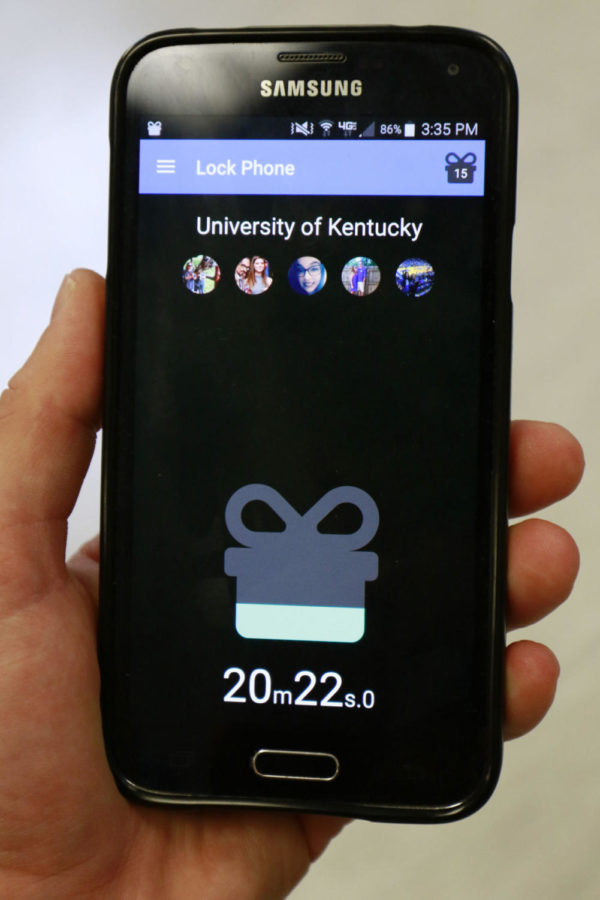App earns students food
Pocket Points is a new mobile phone app that rewards students for staying off of their phones during class. Photo by Hunter Mitchell | Staff
September 18, 2016
App developer Mitch Gardner is not your typical college drop out. With a wildly popular app aimed to improve focus among college students and nothing but expansion plans for the future, this 23 year old is hitting it big, degree or not.
As an average college student, Gardner had the idea to turn students’ idle phones into free food and benefits.
In a modern era where there are more distractions in class than reasons to focus, Gardner was irritated from an early age by the dependence on technology that millennials have been raised to have.
“When I was a sophomore I had to do an English project on technology addiction and this was before Pocket Points even started so this is something that has been on my mind for a long time,” Gardner said. “It’s obviously annoying to be in a classroom or a social setting and have everyone on their phones when they should be paying attention to what’s happening around them. I think Pocket Points has become a pretty good incentive to get people to stay off their phones and be present.”
It wasn’t until college that Gardner and his business partner Rob Richardson came up with the idea to create an app that encourages students to stay off their phones and watch the rewards roll in. The surprise came when Pocket Points became an overnight phenomenon, testing extremely well at the first few schools.
“Rob is a computer science major and I was a business marketing major,” Gardner said. “Rob has made a couple apps in the past so we kind of just started brainstorming this idea. We knew that we had a good product. It was just a matter of if we could get the right merchants on and if students would use it.”
The pair debuted the app for the first time at their own college and in no time the idea took off. After having 30 percent of students at Chico State use the app within weeks of its debut, it then moved to Penn State where it reached about 12,000 students in less than a month.
The concept of Pocket Points is simple. The app can detect when a student’s phone is within the perimeters of campus, and for every minute the phone is locked and the app is activated the student will start earning points. In return, the points can be exchanged for discounts and rewards at local businesses as well as online shops. For Gardner, choosing the right merchants was a crucial step.
“We have a really great sales team that will contact the business owners and figure out what would benefit the business owners as much as possible because there is very much two sides to the deal,” Gardner said. “We give businesses the ability to change their rewards whenever they want on their business portal and the way it works for them is a better solution for distributing coupons and discounts because people check their mobile phone a lot more than they are reading newspapers and using coupons in the mail.”
The app just recently launched at UK and this is just one step of the expansion Gardner hopes to see in the next year.
While Gardner is pleased with the success of his creation, he is not shocked, even utilizing the app himself for a time while still at Chico State.
“When we launched pocket points I was a senior so I used it myself for a little bit. Rob and I dropped out when the app took off, but while we were in college the app was just taking off.”
Pocket Points can be downloaded for free on the Apple store and Google Play.
































































































































































